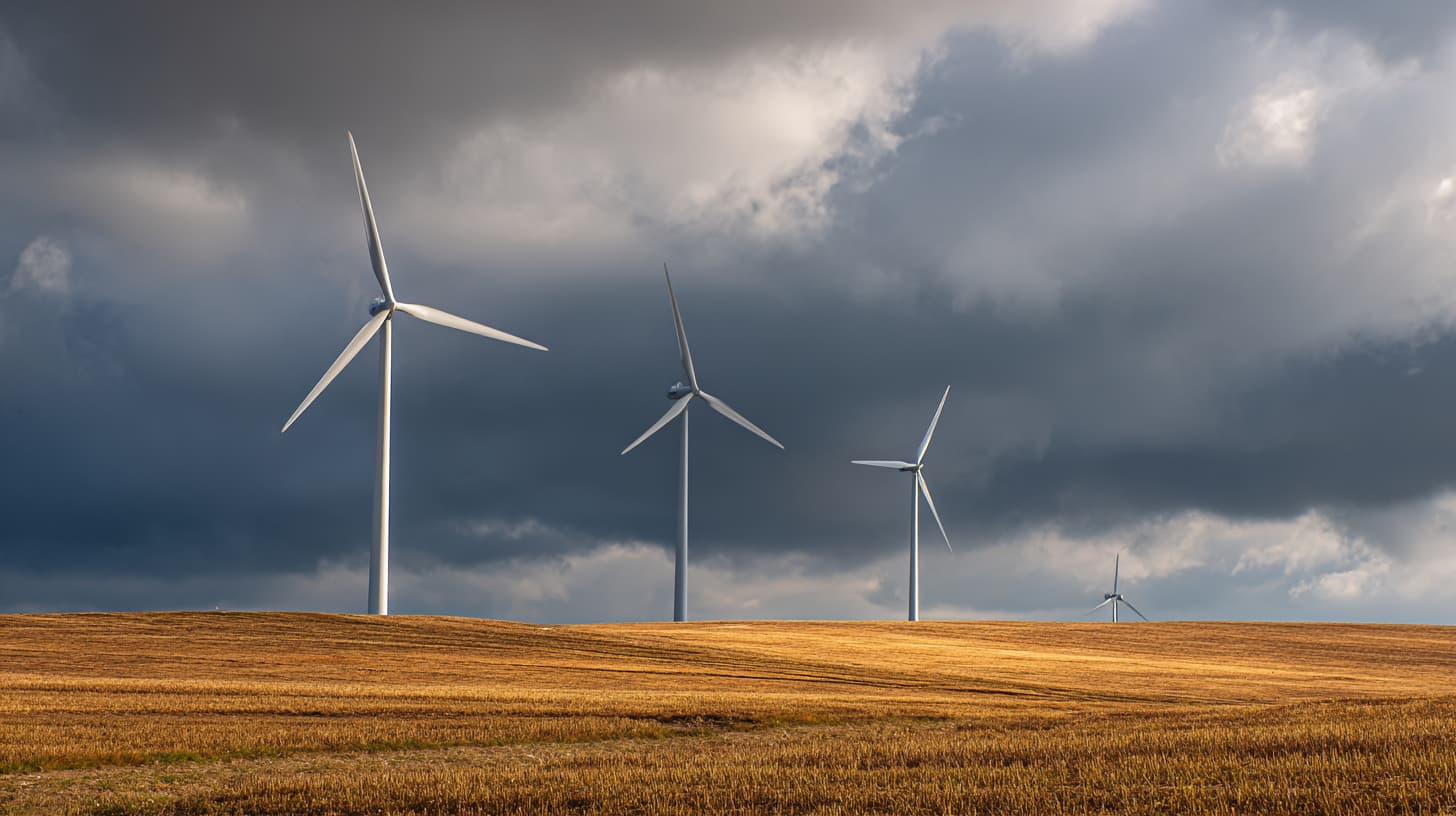
China's Renewable Energy Record: Your Strategy for 2025
China installed 264 GW of wind and solar capacity in H1 2025 alone—more than Germany built in 25 years. Discover the opportunities and challenges this massive expansion creates for your business and how to position yourself strategically.
The Scale of China's Renewable Energy Boom
The speed of China's renewable energy expansion in 2025 is historic. In the first half alone, 264 gigawatts were installed—212.2 GW solar and 51.4 GW wind. For comparison: Germany currently has only about 120-145 GW of total renewable capacity.
Sharon Feng, China expert at Wood Mackenzie, describes the development this way. China has become the first country to exceed the 1 terawatt solar capacity mark. Solar power generated in China in 2025 alone reaches about half of the annual electricity generation of all nuclear power plants worldwide.
Technological Drivers of Chinese Success
The massive expansion is based on technological advantages and state support. China relies on mass production of Heterojunction (HJT) and TOPCon cells with efficiencies up to 26%, as well as supersize onshore and offshore wind turbines up to 20 MW per unit.
Technological Advantages of Chinese Suppliers
- Mass production of high-efficiency solar cells (HJT & TOPCon)
- Economies of scale with supersize wind turbines (up to 20 MW)
- Automated manufacturing and AI-optimized plant management
- Hybrid energy parks with integrated storage technology
This technological superiority enables Chinese manufacturers like LONGi, JA Solar, Jinko Solar, Goldwind, and Mingyang to offer extremely competitive prices while achieving high production volumes.
Impact on European Markets
China's renewable energy boom directly affects you—whether you're a solar manufacturer, wind supplier, or energy provider. The price-technology combination from China forces European companies to reposition themselves.
Regulatory Framework in Europe
Compliance Requirements for China Partnerships
- GDPR: China is not considered a safe third country—strict data transfer requirements
- EU AI Act: Chinese AI systems must meet European documentation requirements
- DPIA: Data Protection Impact Assessment mandatory for third-country transfers
- Penalties: Up to 4% of global annual revenue for violations
European Market Opportunities
Focus on planning, installation, and maintenance rather than pure hardware production
Offer GDPR-compliant software and AI systems for plant operations
Focus on Agri-PV, floating offshore, or recycling technologies
Combine Asian pricing with European warranties and support
Challenges for European Businesses
The massive price and cost pressure from Chinese suppliers forces you to realign. Particularly in data security and after-sales service, significant concerns exist among European customers.
Success Factors for European Markets
- GDPR compliance as competitive advantage
- European support and warranty services
- Certifications for EU standards and ESG criteria
- Local presence and cultural proximity
The key to success lies in leveraging the cost advantages of Chinese components while playing to European strengths in compliance, quality, and service.
Strategic Solution Approaches for Your Business
Based on current market dynamics, there are four strategic paths to successful positioning.
Combine Chinese hardware with European services and take overall project responsibility.
Specialize in high-quality niche products like Agri-PV, BIPV, or specialized offshore solutions.
Develop GDPR-compliant energy management software and AI solutions for renewable operations.
Offer premium maintenance, monitoring, and spare parts service for all plants—manufacturer-independent.
Each strategy requires different investments and competencies. Choose the path that best fits your company and strengths.
Concrete Business Opportunities
Despite competitive pressure, China's renewable boom creates specific opportunities for European companies.
You can realize large projects more economically and win more contracts.
The need for maintenance and monitoring grows with every installed plant.
AI-powered optimization and smart control become increasingly important.
Customers pay more for European quality and reliable service.
Your Strategic Roadmap for 2025-2026
Based on current market developments, I recommend a three-phase approach to positioning your company.
Step 1: Analysis & Positioning (Q1 2025)
Analyze your current strengths compared to Chinese suppliers and define your strategic niche. Review your compliance capabilities and identify investment needs.
Step 2: Competency Building & Partnerships (Q2-Q3 2025)
Develop necessary GDPR and AI Act compliance structures. Build strategic partnerships with reliable Chinese manufacturers and develop your service approach.
Step 3: Market Launch & Scaling (Q4 2025-2026)
Start pilot projects with your new business model. Collect references and scale successful approaches. Continuously optimize your processes and expand your offering.
Critical Success Factors
- Early development of compliance expertise
- Strong focus on service and customer retention
- Transparent communication about origin and quality
- Investment in digital competencies and AI integration
Conclusion: Your Opportunities in China's Renewable Era
China's wind and solar boom is neither threat nor blessing—it's a reality you must strategically address. The companies that will succeed combine the cost advantages of global markets with European strengths in quality, service, and compliance.
Key Takeaways for You
- China's expansion is real and will continue to change the market
- GDPR and AI Act compliance are becoming decisive competitive factors
- Service and digitalization are your best differentiation opportunities
- Clear strategic positioning is essential for survival
The key to success lies in proactive action rather than reactive response. Analyze your position now, develop your strategy, and begin implementation. The market won't wait for you—but it rewards those who make the right decisions.